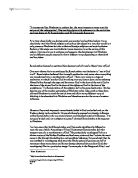In chapter 3 vs. 3 – 9 Krishna says that Arjuna must fulfil his duty in his life because every man was made to work. A more excellent man should, with his mind control his senses and with his spiritual exercise of works, remain detached a while. To win freedom a man must work and work to the end.
Krishna also speaks of is renunciation which can be also known as Selfless knowledge. Renunciation means complete renouncement of doer-ship, ownership, and selfish motive behind an action, and not the renunciation of work, or the worldly objects. Renunciation comes only after the dawn of Self-knowledge. Renunciation is considered the goal of life. Selfless service (Seva, Karma Yoga) and Self-knowledge are the necessary means to achieve the goal. True renunciation is attaching all action and possession, including body, mind, and thought, to the service of the Supreme. It is evident that the emphasis on knowledge in the Bhagavad is not as strong as that of the Upanishads. But Lord Krishna does say that ‘The mind and intellect of a person become steady who is neither elated by desired results, nor perturbed by undesired results. Restless senses O Arjuna forcibly carry away the mind of even a wise person striving for perfection. One should fix one’s mind on God with loving contemplation after bringing the sense under control. One’s intellect becomes steady with one’s senses are under complete control. A disciplined person, enjoying sense objects that are under control and free from attachment and aversion, attains tranquillity. An uncontrolled mind distracts the intellect as a storm sways a ship from its path. A person who is not disturbed by the incessant flow of desire, that enter the mind, like rivers into an ocean which is ever filled but is not disturbed by the rives, can alone achieve peace, not the one who strives to satisfy such desires.’ These statements and metaphors are in favour of the importance of renunciation, which is that; Self-realization is to know one’s relationship with the Supreme Lord and His true transcendental nature. A self-realized person does not need rituals to reach God.
It is apparent that renunciation plays important inside the Bhagavad Gita but in conclusion it also obvious to see how much importance duty and action has. However to say that the Bhagavad Gita supports one more than the other would is incorrect. Krishna does emphasise the importance of action without attachment, Karma Yoga. He says if a man is attached to his action then from attachment springs desire, from desire is anger born, From anger comes bewilderment, from bewilderment wandering of the mind, form wandering of the, mind destruction of the mind: once the soul is destroyed the man is lost. This also emphasises the importance of Karma Yoga, which suggests that because it can lead to the destruction of the soul, that its importance is more extreme than that of renunciation.
Many people that ‘the main gospel of the Bhagavad Gita is Karma-Yoga’, as much of the Bhagavad Gita explains this. And the first recognition that a different way (Bhakti) is approaching is shown in the context of doing your own duty and action,’ Cast all your works on Me, your thoughts withdrawn in what appertains to self; have neither hope nor thought that ‘This is mine’: cast off this fever! Fight!’ (3, 30) ‘The Gita points out that renunciation is not for everyone and cannot be resorted to by one who has worldly desires. So the path of action (Karma Yoga) is meant for the worldly people to engage in action so that they can fulfil their legitimate righteously. Action without motive, out of a sense of duty will eventually help a person to evolve spiritually and reach a stage where he will be totally free from desires when he can opt to either continue to engage in action or withdraw from the world.’ From this we learn that Karma Yoga/ duty and action is a very important aspect of the Bhagavad Gita. The Bhagavad-Gita joins renunciation and action and duty to become Karma Yoga, which is to detach yourself from your actions. This detachment is the renunciation. This is why the Bhagavad Gita is somewhat known as a ‘synthesis’ because it joins old philosophies together and creates new ones. As a matter of fact, the whole gospel of the Gita is nothing but the blending of knowledge and activity. We have wrong notions about both these; we assume that knowledge means no activity, while activity is divorced from knowledge. Sri Krishna tells us that neither notion is correct. It is very difficult to understand what knowledge and activity are. Action is the outward expression of Knowledge and knowledge is the inner reality of action. This may be said to be the central theme of the Gita. Action is rooted in knowledge. Then you gain the requisite inner trend to conduct yourself rightly in the outer world.’ Flood defines this synthesis by saying ‘Through non attachment to action, and knowledge of the Lord, a person will be liberated and be united with the Lord at death’.
Introduction to Hinduism Flood P14
Introduction to Hinduism Flood P125
Essentials of Indian Philosophy M. Hiriyanna P54
Man must not shirk his responsibilities
An introduction to Hinduism Flood P126







